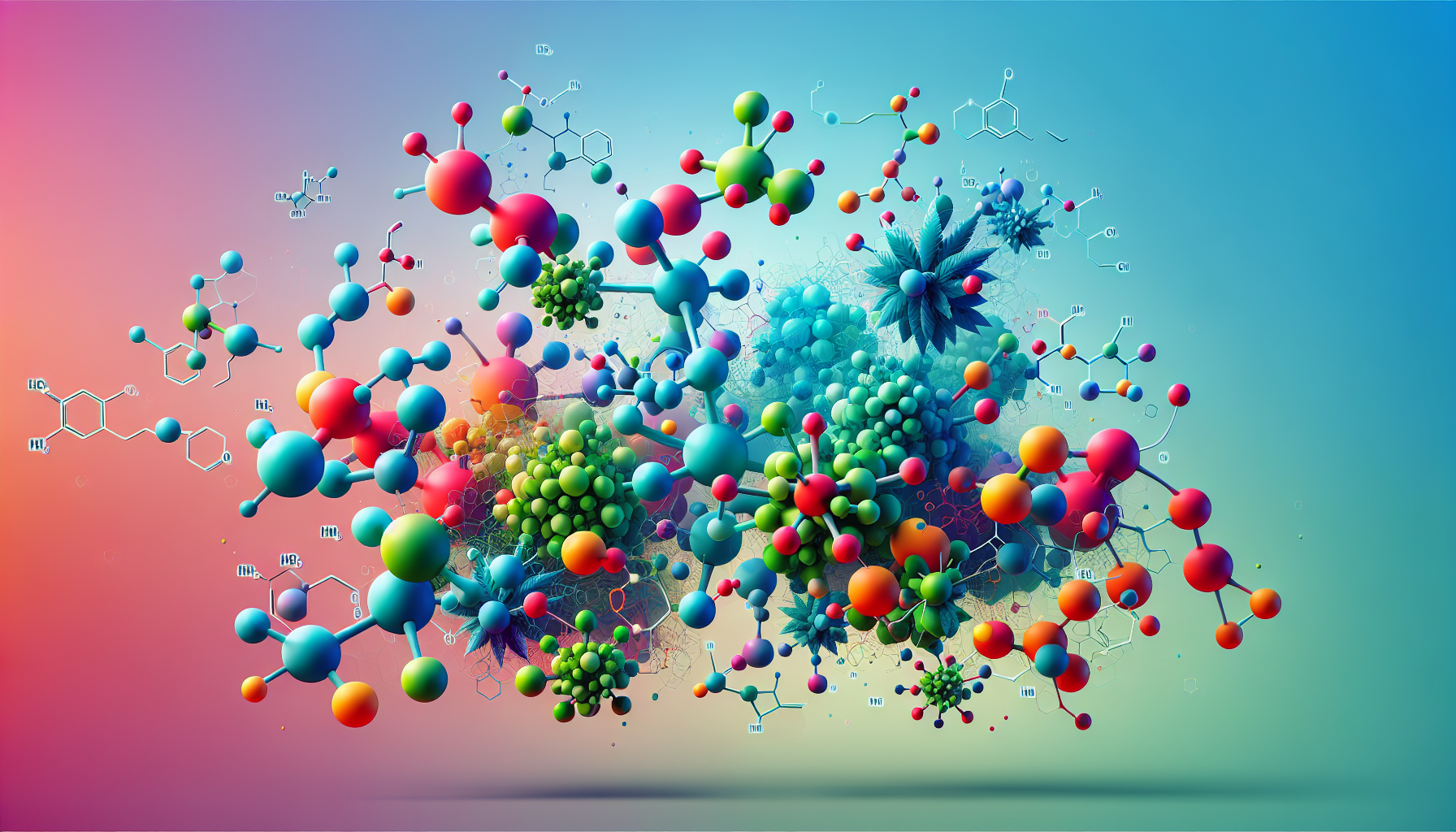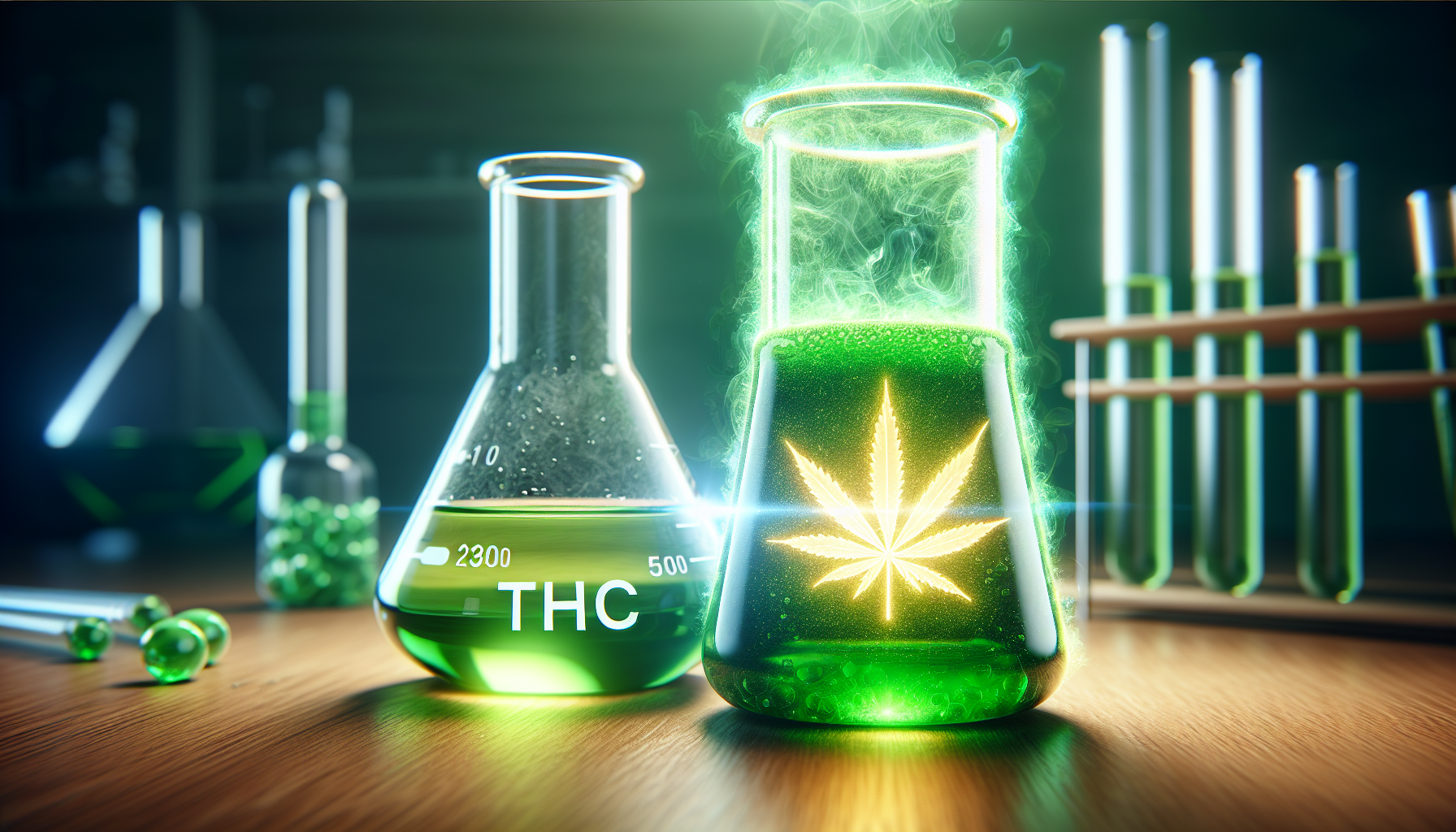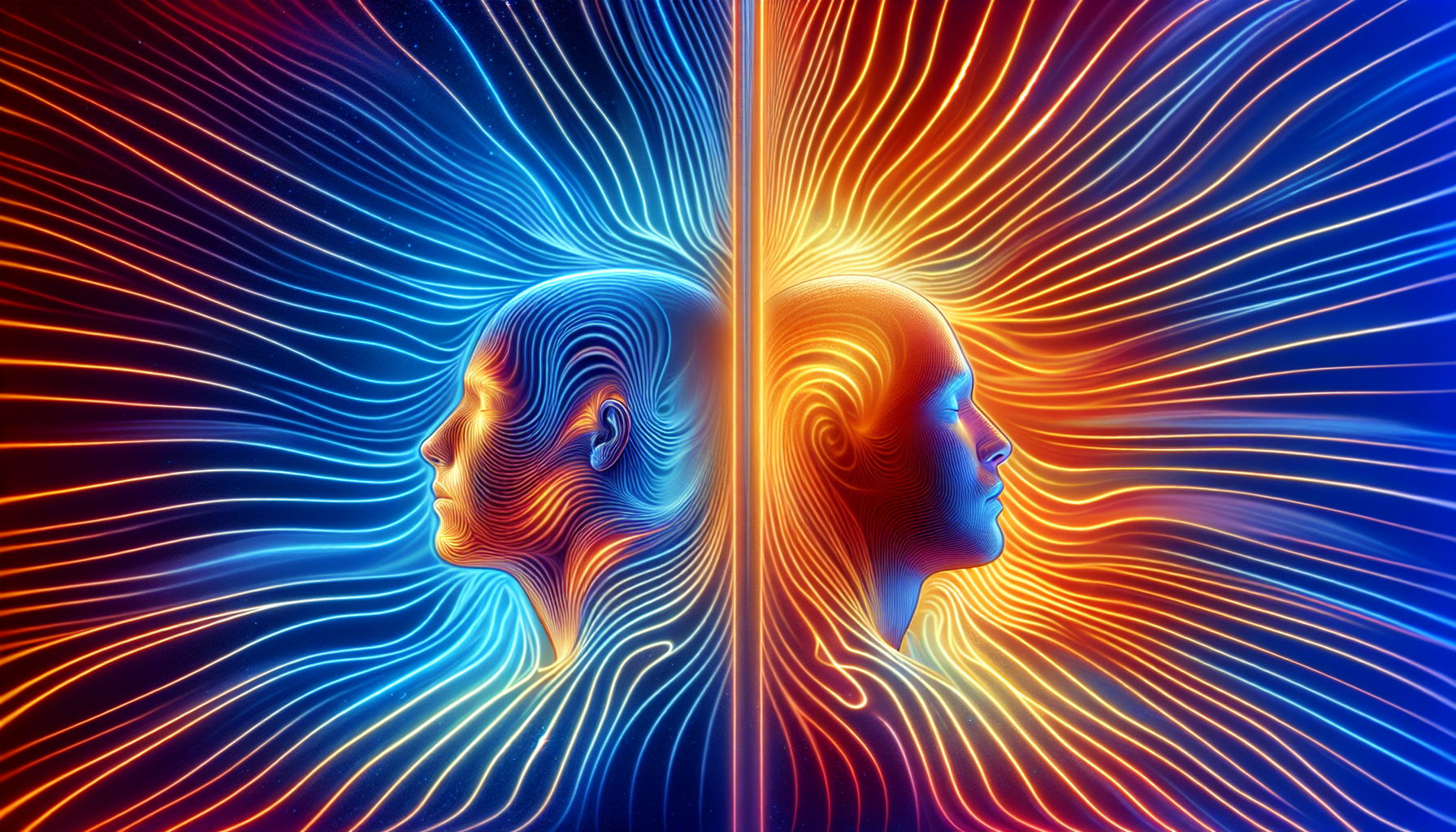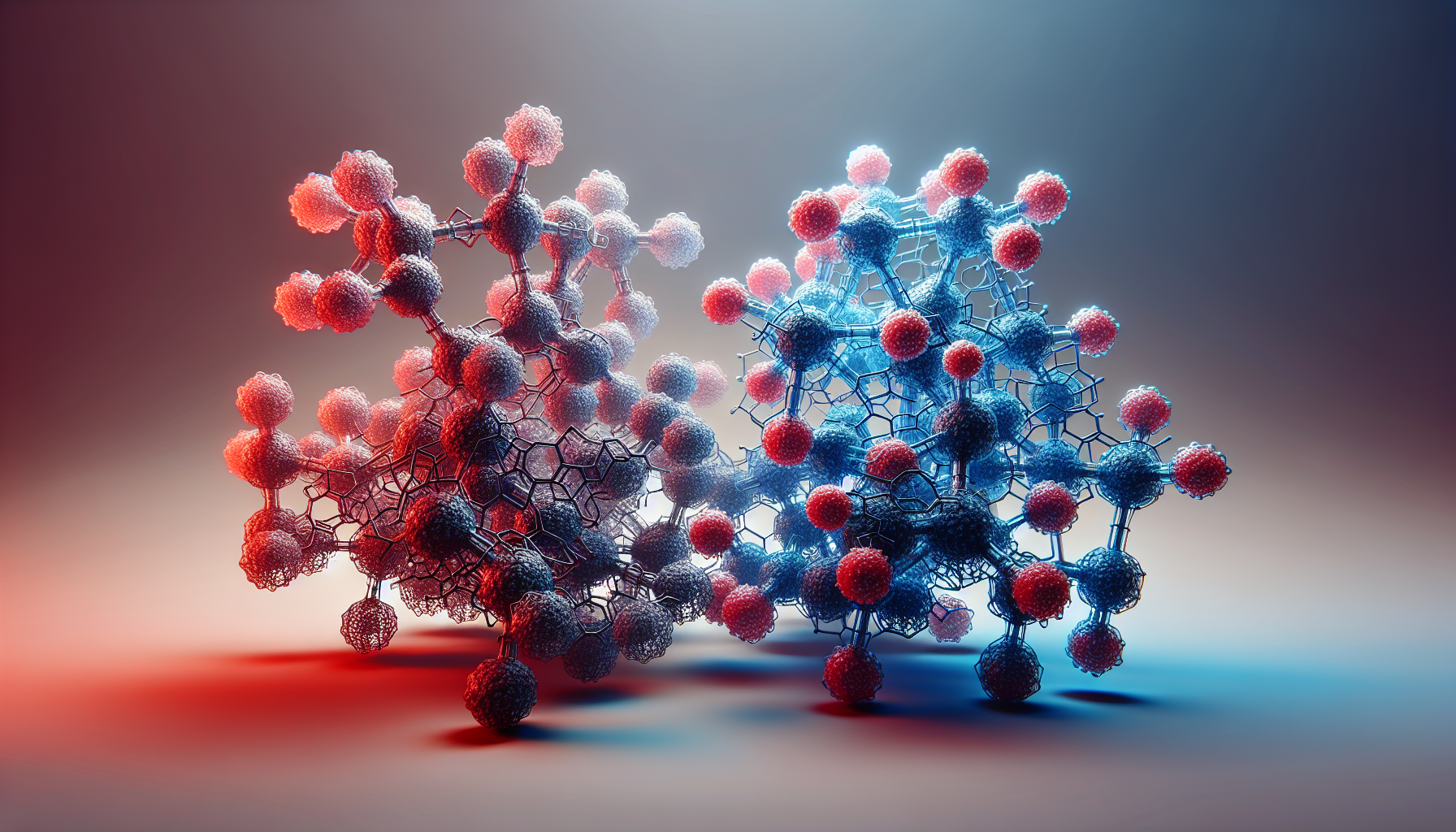Two powerful hemp-derived cannabinoids that occur naturally in hemp plants are THCP and THC which are garnering a ton of attention. THC is one that you've likely heard of, also referred to as Delta 9 THC. This is one of the main major cannabinoids found in the cannabis plant. THC-P on the other hand is a more recent discovery which is also found in cannabis plants.
Comprehending the distinctions between these substances, specifically regarding THCP vs THC, can assist you on your cannabis journey with greater acuity and awareness of what’s at hand. Unveil the power behind the cannabis plant by gaining an understanding of how potency, psychoactive properties, effects, and legality are determined based upon which cannabinoid is present.
Key Takeaways
-
THCP is a highly potent cannabinoid compared to regular THC, with research showing it can be 33 times stronger due to its strong binding affinity for endocannabinoid receptors.
-
THCP and THC may offer potential therapeutic benefits such as pain relief, anti-inflammatory properties, and improved sleep. The legal status of both compounds along with other cannabinoids varies from state to state across the US.
-
Consumption methods and preferences should be considered when using either compound, along with careful dosing and sourcing from reliable retailers like Everyday Delta to ensure you are getting top quality THC products.
THCP vs THC: An Overview

While Delta 9 THC isn't new, there are many other hemp-derived cannabinoids present in cannabis plants, one of them being the naturally occurring cannabinoid THC-P, which has gained much attention from the industry due to its potency. Some would even consider it to be the most potent cannabinoid of all, even rivaling the potency of the ever popular cannabinoid THC-O.
The strength of THC-P is attributed to a stronger affinity for the CB1 receptor than that of traditional THC, which makes it 30 times more powerful and brings on intensified effects. The original composition also creates an exclusive interaction with cannabinoid receptors and the endocannabinoid system (ECS) in the body as opposed to other cannabinoids like synthetic compounds or THC molecules (THC-O).
To ensure the safe consumption of hemp-derived products, third-party laboratory testing is vital whenever you buy THC-P online or in store.
Potency: THC-P vs THC

THC-P is a particularly powerful cannabinoid, even more so than Delta 9 THC. Its affinity for CB1 receptors is what offers an intense effect but is also what allows for its quick onset and extended duration.
Interestingly enough, even slight changes to the molecular structure of cannabinoids have massive implications on potency. A couple great examples of this are Delta 9 THC and Delta 8 THC. Both are derived from the same source yet differ by double-bond placement resulting in various differences in effects and potency.
Studies show that THC-P has over 33x stronger binding potential when compared with cannabis’ active ingredient, tetrahydrocannabinol (THC). Not limited to marijuana plants, but also hemp plants. Making it one of the many impressive components found within various species of cannabis and hemp compounds as well as their interaction with the ECS.
Effects: THC-P vs THC

THC and THC-P both have the potential to provide pain relief, relaxation, and euphoria. However, there are some notable distinctions between the two. These arise from their differing ability of this cannabinoid to interact with CB1 receptors, resulting in its differences in potency.
Onset and Duration
The chemical makeup of cannabinoids can drastically influence their psychoactive effects, including onset and duration. Factors such as dosage, consumption method (smoking, vaping, or edibles), individual metabolism, and tolerance levels all play a role in how rapidly the effect is felt by an individual and for how long it will last, these variables can also vary from person to person.
Because THC-P has a stronger binding affinity with the endocannabinoid system than THC, it remains as the most potent. Hence its pronounced psychoactive effects when compared to other compounds. As opposed to many others within this group of substances, THC-P stands out due to being recognized as the most powerful cannabinoid resulting in intense impacts on those using them.
Ultimately variations between both chemicals’ structures are what create different psychological characteristics distinguishing one cannabinoid from another.
Side Effects
The potential therapeutic advantages of cannabinoids are often promoted and discussed, yet it’s equally essential to take into account their possible side effects.
Both THC and THC-P may induce reactions such as fear, unease, or diminished motor control, though due to their higher potency level, THC-P could have a greater inclination towards producing these symptoms especially when taken in higher doses.
Regarding the power behind THC-P, it is an important element in determining how severe any accompanying negative impacts will be. With increased strength of this compound likely results in more serious outcomes than those caused by lower concentrations. Making it very important to start off with small amounts of THCP until you are familiar with how it affects you.
It's also important to note that there has not been significant research done regarding what impact can be produced through the use of THC-P specifically, the general consensus tends to suggest that similar results would present themselves relative to the usage of standard THC-based products.
Chemical Structure and Binding Affinity

As mentioned earlier, the chemical structure of a cannabinoid can drastically impact its effectiveness and effects. For example, THC-P has a seven-carbon alkyl side chain compared to THC’s five-carbons, this addition of carbon atoms is what is responsible for how the cannabinoid interacts with cannabis receptors in the endocannabinoid system.
Research shows that three carbon atoms are necessary for attaching to the CB1 receptor. Without these components, attachment isn’t possible. As a result of its additional two carbons, THCP binds more strongly, which amplifies its potency, making it unique within the realm of marijuana, even though often uncommon.
Extraction and Production Methods
The process of extracting cannabinoids from hemp and cannabis plants to the end user is heavily dependent on extracting and producing them correctly.
Although THCP can be synthesized using CBD, it usually isn’t found in herbal sources directly. This requires a combination of liquid chromatography and mass spectrometry techniques.
When trying to extract pure THC, other more feasible methods such as ice water extraction or solvent-based procedures that use substances like ethanol, CO2, etc., are employed while abiding by set legal standards for safety reasons.
Legality: THC-P vs THC
The complicated nature of cannabinoids, as demonstrated by their intricate chemical structures, is reminiscent of the laws governing them. THCP and its products are federally legal under the 2018 Farm Bill.
This law has left room for variations at a state or national level, which adds complexity to understanding how it fits into the cannabis industry. The DEA has been known to oppose synthetic cannabinoid use, such as THC-O, yet THC itself can be used for medicinal and recreational purposes depending on which state you’re located in making staying up to date with your local legislation vital if considering using these compounds.
Possible Medical Benefits and Uses

The unique properties of THC and THCP, often associated with recreational use, may provide various therapeutic benefits. These potential benefits may include pain relief, anti-inflammatory effects as well as the potential for enhanced sleep quality.
Research is still being conducted to explore the full impact that THCP can have on individuals, but studies are indicating it may have the potential to be beneficial for those with chronic conditions such as multiple sclerosis or Crohn’s disease.
This preliminary evidence suggests possible applications for this compound when dealing with issues like managing pain levels or inflammatory diseases such as inflammatory bowel syndrome and nausea.
However, a lot more research needs to be done before any conclusions can be made about its efficacy. Nevertheless, interest has been sparked among researchers due to its distinct characteristics regarding providing potential therapeutical advantages.
Consumption Methods and Preferences
When embarking on a journey with cannabis, the selection of consumption methods is an important step. The most popular options are using a THCP vape, smoking, ingesting edibles and taking tinctures.
Each consumption method offers its own unique experience depending on user preference as well as individual tolerance to THC levels. Edible products can come in a variety of forms such as THC gummies, cakes, biscuits or cookies, chocolates and candy bars, beverages like coffee drinks or even alcoholic cocktails – there’s definitely something for everyone!
Vaping through use of disposable vape pens or vape cartridges may be considered slightly less harmful than other choices that involve inhalation due to fewer produced toxic chemicals, but recent research has indicated that it could lead to lung damage if done too often with THC oils present. Whatever path you choose when consuming cannabis, make sure it suits your needs best!
Risks and Considerations
THCP, a powerful member of the family of THC analogs, carries some considerations to think about such as possible negative effects and legal obscurity. It is important to be conscious of these factors when dosing either of these hemp-derived compounds.
Correct dosages are very important with both of these powerful cannabinoids. Start low, then build up doses slowly until optimum effect can be achieved while keeping all potential factors into account consistently in order to avoid potential side effects.
Summary
Fully understanding THCP and THC are important to enjoying a safe cannabis experience. The chemical structure, potency, effects as well as the legality and potential therapeutic benefits should be taken into consideration when exploring these cannabinoids.
Their properties offer unique advantages, but also come with certain risks that must not be ignored. With its more powerful intensity accompanied by stronger binding affinity, THCP brings about greater effect yet heightened side-effects compared to THC.
Only you can decide which, if either of these cannabinoids are right for you and your goals. Either way, all users, whether they are just starting or experienced, need to stay educated on THC and THC-P products for sale while navigating through the cannabis world.
Frequently Asked Questions
Is THCP stronger than THC?
THC’s psychoactive counterpart, THCP, is considered to be significantly more powerful than THC itself.
What is the strongest THC variant?
THC-P takes the cake as the strongest THC variant. Delta-9 THC is the second most powerful and potent form, well known for its heavy psychological effects.
Both has been found to produce, in cases, of mild side effects like anxiety as well as paranoia if used in excessive amounts.
On the other hand, Delta 10 and Delta 8 THC produces less intense highs while still bringing mild uplifting feelings with a lower risk of side effects compared to Delta 9 THC.
What is stronger THCP or HHC?
THCP is a much more potent compound when compared to HHC, consequently leading to increased intoxication levels.
What are the potential medical benefits of THCP and THC?
THC and THCP may have the potential to provide various therapeutic advantages, including alleviation of discomfort, anti-inflammatory properties as well as enhanced sleep.
These two substances may also help those who are struggling with pain relief or inflammation in some way.
What are the potential side effects of THCP?
THCP’s increased potency can have unwanted side effects, including feelings of anxiety and paranoia as well as difficulty with coordination.

